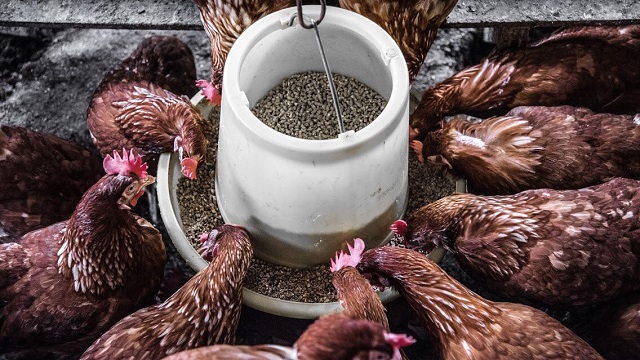
Kampala, Uganda | THE INDEPENDENT | Researchers at Uganda Martyrs University’s in Nkozi in Mpigi district have finalized research into effective means through, which farmers can use black soldier fly larvae to replace silver fish and soya beans as the main source of protein in animal feed production.
The research that was conducted by the agriculture department is based on nature with intentions of protecting the environment through the reduction of silver fish consumption by humans and animal feed production as well as reduce land under soya bean cultivation.
That project that cost shillings 814 million is financed by the Education and Sports through the Private sector foundation. The lead Researcher, Edward Ssebbombo, says the innovation has potential to transform the agricultural sector in the country since it is easy to breed the said insects.
Joseph Ssekandi, the Dean Faculty of Agriculture, says the protein obtained from the black soldier fly larvae is 70 percent better than that acquired from silver fish or soya bean used in the production of animal feeds.
Ssekandi explains that once feeds mixed with black soldier fly larvae, birds not only lay eggs with a hard shell but also lay for a longer period.
Ssebbombo notes that a separate study conducted by the International center for insect and physiology and ecology based in Nairobi discovered that it is cost effective to use the black soldier fly larvae as protein source in making animal feeds compared to soya and sliver fish.
A kilogram of black soldier fly larvae costs Shillings 650 while that of silver fish or soya costs more than Shillings 3000.
Sister Theopista Namutebi, a lecturer in the faculty, says black soldier flies can be captured from the wild by setting up traps around domestic waste. She says that after being captured and kept in cages, they feed by sucking water from the waste.
The cages where the flies are kept are then placed in an open area where there is enough sunshine under which they met and lay eggs. “In those cages we provide for them where they lay eggs and after hatching, they are transferred to another place as they turn into a larvae stage,” says Sr. Namutebi.
Each black soldier fly has a life span of only six days and it can lay up to 900 eggs before it dies. The system set up at the university produces an estimated four tones of the mills got from this procedure per week. Uganda Martyrs University is scheduled to start training farmers in the breeding and production of the larvae of the black soldier fly.
According to the American Association for the Advancement of Science, insects can provide much of the protein animals need at a much lower environmental cost. Several studies suggest that many animals do just fine on insects.
A 2014 review by Food and agriculture Organization-FAO scientists of feeding trials conducted on catfish, tilapia, rainbow trout and several other fish species, as well as crustaceans, chickens, and pigs, concluded that insect meal could replace between 25 percent and 100 percent of soymeal or fishmeal in the animals’ diets with no adverse effects.
******
URN
 The Independent Uganda: You get the Truth we Pay the Price
The Independent Uganda: You get the Truth we Pay the Price



Interesting
Innovative
I’ve picked the interest on m agots rearing. How can I join the group which rears BSF leaves?